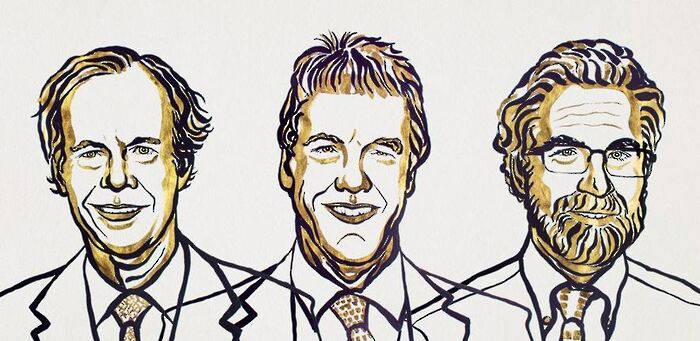Trinity fellow wins Nobel prize for exoplanet discovery
Professor Didier Queloz was awarded the 2019 Physics Nobel Prize in recognition of his work in physical cosmology

Didier Queloz, fellow of Trinity College and professor at the Cavendish Laboratory, has won this year’s Nobel Prize in Physics.
The prize, and the nine million Swedish kroner (£750,000) which comes with it will be shared split between three laureates. Queloz will share one half with Michel Mayor, professor emeritus at the University of Geneva and the person with whom he discovered the first planet outside our solar system orbiting a sun-like star in 1995.
Professor James Peebles, professor emeritus at Princeton University, has been awarded the other half for his theoretical discoveries in physical cosmology.
Announcing the winners on Tuesday, the day after a Cambridge alumnus received the prize in Medicine, the Nobel Assembly said that the work of Queloz and Mayor had “started a revolution in astronomy.”
Since the discovery, a further 4,000 exoplanets have been identified, representing a doubling of known exoplanets every 27 months.
Following the discovery of 51 Pegasi b, named after the star it orbits, Queloz has continued his work in the field of cosmology at the Cambridge Exoplanet Research Centre. His contributions have helped improve the precision of the Doppler technique for exoplanet identification.
Speaking on the day of the announcement, Queloz said: “It’s an incredible honour and I’m still trying to digest it. When we discovered the first exoplanet, it was pretty obvious that this was something important, even though not everyone believed us at the time.
“Back then, exoplanet research was a very small field. I think there were about fifty of us and we were seen as weirdos. Now there are probably over a thousand people working in the field.”
The University’s Vice-Chancellor, Professor Stephen Toope, said “I am delighted to hear that Professor Didier Queloz has been awarded this year’s Nobel Prize in Physics. Didier’s discovery of planets beyond our solar system has ushered in a revolutionary new era for cosmology.”
“This work represents an extraordinary scientific achievement but also offers humanity so much inspiration – the chance to imagine such distant and different, or perhaps similar, worlds. It gives me tremendous pleasure, on behalf of our community, to congratulate the University of Cambridge’s latest Nobel Prize winner.”
 Comment / Plastic pubs: the problem with Cambridge alehouses 5 January 2026
Comment / Plastic pubs: the problem with Cambridge alehouses 5 January 2026 News / Cambridge businesses concerned infrastructure delays will hurt growth5 January 2026
News / Cambridge businesses concerned infrastructure delays will hurt growth5 January 2026 News / New movement ‘Cambridge is Chopped’ launched to fight against hate crime7 January 2026
News / New movement ‘Cambridge is Chopped’ launched to fight against hate crime7 January 2026 News / AstraZeneca sues for £32 million over faulty construction at Cambridge Campus31 December 2025
News / AstraZeneca sues for £32 million over faulty construction at Cambridge Campus31 December 2025 Interviews / You don’t need to peak at Cambridge, says Robin Harding31 December 2025
Interviews / You don’t need to peak at Cambridge, says Robin Harding31 December 2025










